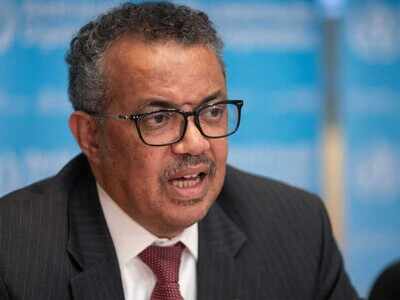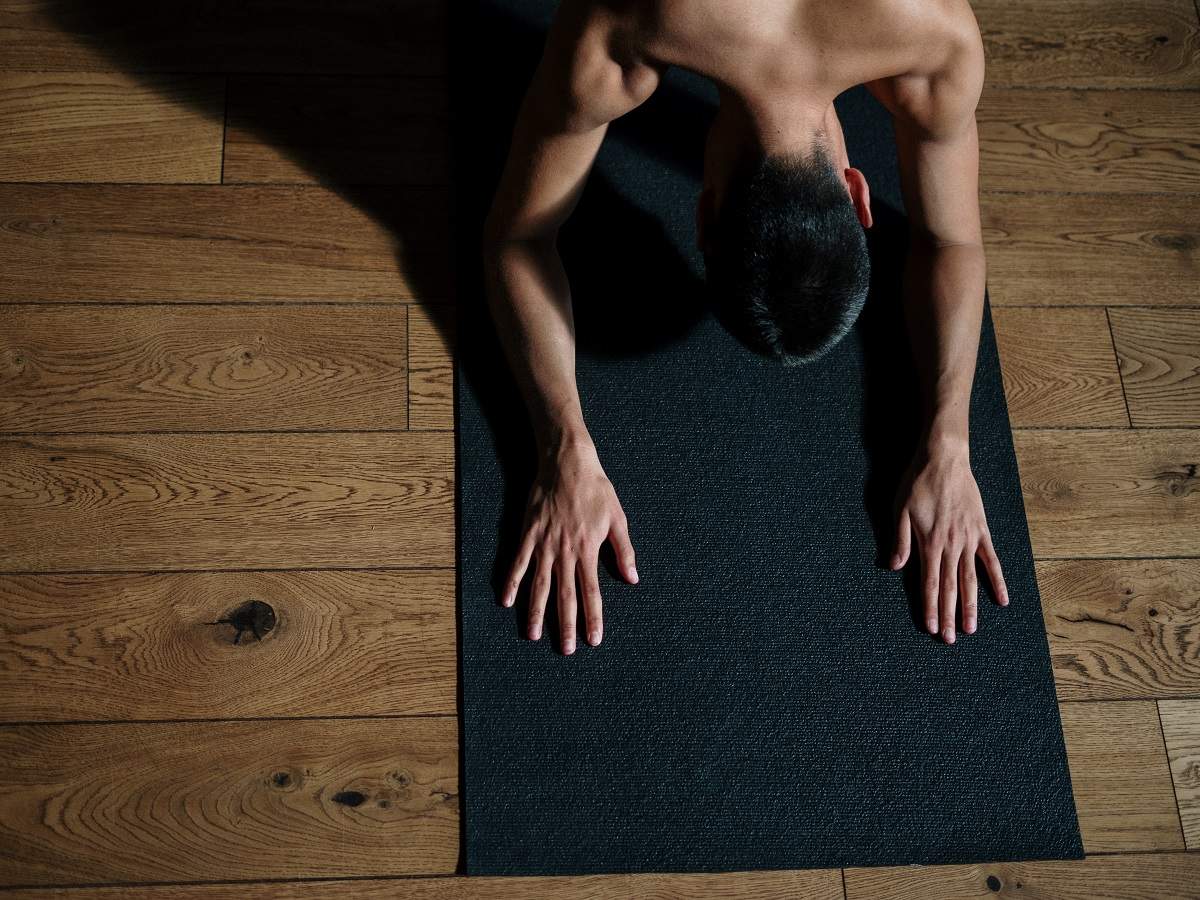
The lack of global leadership and unity to fight the coronavirus is a bigger threat than the outbreak itself, the head of the WHO said on Monday, adding that politicisation of the pandemic had made it worse. The comments by Tedros Adhanom Ghebreyesus, who has faced criticism from President Trump, came as the world reported its largest single-day increase in coronavirus cases with infections soaring in Brazil, Iraq, India and southern and western US states.
It took over three months for the world to see 1 million virus infections, but the last 1 million cases have come in just eight days, Tedros said during a videoconference for the Dubai-based World Government Summit. Tedros never mentioned Trump’s name or the fact that he is determined to pull the US out of the UN health agency but warned against “politicising” the pandemic. “The world is in desperate need of national unity and global solidarity. The politicisation of the pandemic has exacerbated it,” Tedros said.
“We cannot defeat this pandemic with a divided world.” Trump has criticised the WHO for its response to the outbreak and what he considers its excessive praise of China, where the outbreak began. The WHO reported a record increase in global coronavirus cases on Sunday, with the total rising by 1,83,020 in a 24-hour period.
The previous record for new cases was 1,81,232 on June 18. So far, over 9 million people have been infected by the virus worldwide and more than 4,69,000 have died, according to Johns Hopkins University. The biggest increase was from North and South America with over 1,16,000 new cases. Brazil, the world’s No. 2 coronavirus hot spot after the US, officially passed 50,000 coronavirus deaths on Sunday, a blow for a country already grappling with more than 1 million cases.
Companies around the world are racing to find a vaccine to counter Covid-19 and there is a fierce debate about how to make sure that vaccine is distributed fairly. Speaking later in the conference, WHO’s special envoy on Covid-19, Dr David Nabarro, said he believed it would be “2 1/2 years until there will be vaccine for everybody in the world”. “Even if there’s a candidate by the end of the year, the safety and efficacy tests will take some time.”
He, however, added: “I would love it to be proved wrong.” US authorities have reported more than 30,000 new infections a day recently but in New York City, once the epicentre of the US outbreak, Monday was akey day for lifting many coronavirus lockdown restrictions, including reopening offices. Yet Eve Gonzalez, a food industry worker, feels it’s too soon to relax curbs. “I’m dying to go out, but people’s health is more important,” she said.
Infections slowed in China and South Korea, suggesting some progress in stemming their newest outbreaks. South Korea,which for the first time confirmed it is in the midst of a “second wave” of infections, reported 17 new cases — the first time its daily increase fell to under 20 in a month. Beijing’s increase was in single digit (nine) for the first time in eight days. Thailand marked 28 days without any local transmission.
The Golden Globes, which kicks off Hollywood’s awards season, will now take place on February 28 instead of its usual slot on the first Sunday in January. Saudi Arabia, meanwhile, said that this year’s haj will not be cancelled, but that due to the coronavirus only “very limited numbers” of people will be allowed to perform the major Muslim pilgrimage. The kingdom said that only people of various nationalities already residing in the country would be allowed to perform the haj.
- Agencies
It took over three months for the world to see 1 million virus infections, but the last 1 million cases have come in just eight days, Tedros said during a videoconference for the Dubai-based World Government Summit. Tedros never mentioned Trump’s name or the fact that he is determined to pull the US out of the UN health agency but warned against “politicising” the pandemic. “The world is in desperate need of national unity and global solidarity. The politicisation of the pandemic has exacerbated it,” Tedros said.
“We cannot defeat this pandemic with a divided world.” Trump has criticised the WHO for its response to the outbreak and what he considers its excessive praise of China, where the outbreak began. The WHO reported a record increase in global coronavirus cases on Sunday, with the total rising by 1,83,020 in a 24-hour period.
The previous record for new cases was 1,81,232 on June 18. So far, over 9 million people have been infected by the virus worldwide and more than 4,69,000 have died, according to Johns Hopkins University. The biggest increase was from North and South America with over 1,16,000 new cases. Brazil, the world’s No. 2 coronavirus hot spot after the US, officially passed 50,000 coronavirus deaths on Sunday, a blow for a country already grappling with more than 1 million cases.
Companies around the world are racing to find a vaccine to counter Covid-19 and there is a fierce debate about how to make sure that vaccine is distributed fairly. Speaking later in the conference, WHO’s special envoy on Covid-19, Dr David Nabarro, said he believed it would be “2 1/2 years until there will be vaccine for everybody in the world”. “Even if there’s a candidate by the end of the year, the safety and efficacy tests will take some time.”
He, however, added: “I would love it to be proved wrong.” US authorities have reported more than 30,000 new infections a day recently but in New York City, once the epicentre of the US outbreak, Monday was akey day for lifting many coronavirus lockdown restrictions, including reopening offices. Yet Eve Gonzalez, a food industry worker, feels it’s too soon to relax curbs. “I’m dying to go out, but people’s health is more important,” she said.
Infections slowed in China and South Korea, suggesting some progress in stemming their newest outbreaks. South Korea,which for the first time confirmed it is in the midst of a “second wave” of infections, reported 17 new cases — the first time its daily increase fell to under 20 in a month. Beijing’s increase was in single digit (nine) for the first time in eight days. Thailand marked 28 days without any local transmission.
The Golden Globes, which kicks off Hollywood’s awards season, will now take place on February 28 instead of its usual slot on the first Sunday in January. Saudi Arabia, meanwhile, said that this year’s haj will not be cancelled, but that due to the coronavirus only “very limited numbers” of people will be allowed to perform the major Muslim pilgrimage. The kingdom said that only people of various nationalities already residing in the country would be allowed to perform the haj.
- Agencies
Download
The Times of India News App for Latest World News

Coronavirus outbreak
Trending Topics
LATEST VIDEOS
More from TOI
Navbharat Times
Featured Today in Travel
Get the app









